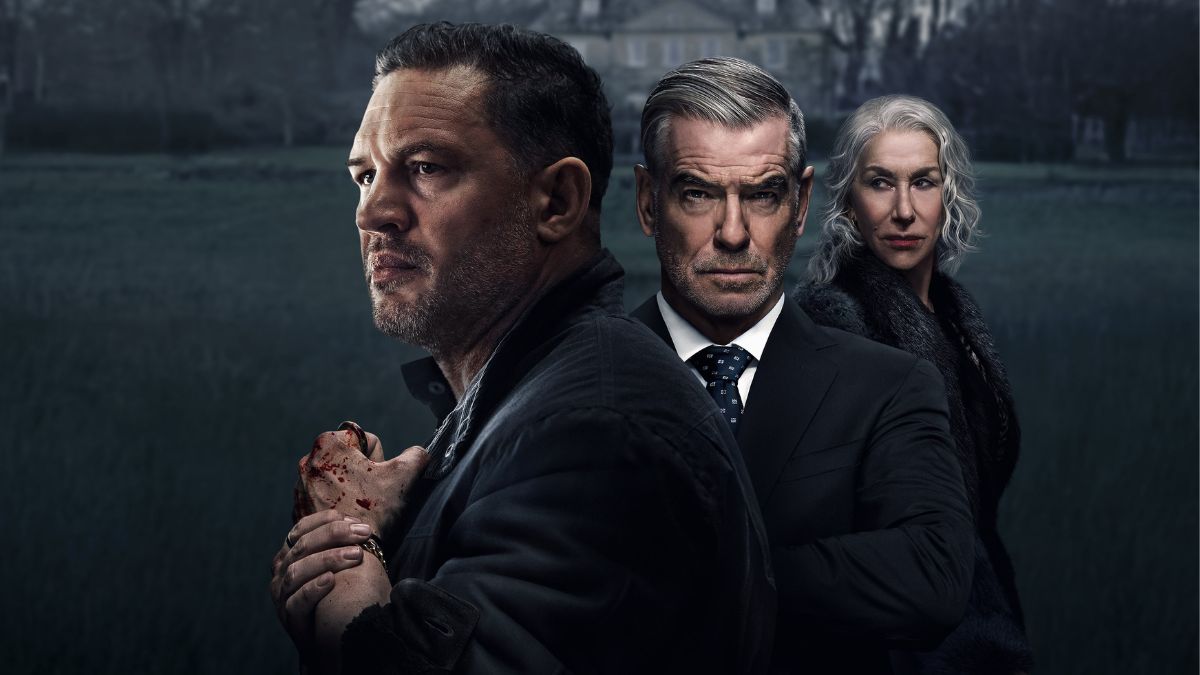'MobLand' Season 1 review: A fast-paced, superbly performed gangster thriller and dysfunctional family drama rolled into one

Pierce Brosnan has played bad guys before, but not so chillingly as he does in MobLand, in which he spends most of the time being extremely repulsive — scheming, sneering, yelling, indulging in betrayal and making some of the female characters squirm in their seats with discomfort and contempt. It took me a while to remember that this is the same man who once played the suave 007 and the charming Remington Steele. The only woman who isn't made uncomfortable by his presence is his wife, Maeve, played by Helen Mirren, who is essentially doing a contemporary Irish gangster version of Lady Macbeth.
Brosnan and Mirren once starred in The Long Good Friday — the 1980 gangster film that I would place at the very top of a 'best gangster films' list — but they never shared the screen. Brosnan, who in that film played the bit, non-speaking part of an IRA assassin after the life of Mirren's on-screen husband, the mob boss Harold Shand (Bob Hoskins), has been cast as Conrad Harrigan, a similarly ruthless mob boss 45 years later in MobLand, which has Guy Ritchie as an executive producer and directing the first two episodes. At one point in the film, there is even the suggestion that the couple may be former IRA members — if I'm not mistaken.
Never mind that Tom Hardy's name is mentioned first in the cast section of the MobLand Wikipedia page. I opted to begin this review with Conrad and Maeve because, one, everything begins and ends with them; two, the elements of the dysfunctional family drama appear more pronounced than the gangster drama. Through its fast-paced, 10-episode span, the show moves like a race-against-the-clock thriller with multiple double crosses happening quicker than you can count, explosions and bloody shootouts, all the while some of its secondary and tertiary characters struggle to make sense of what's happening around them and make a few wrong choices because they want to make the idea of living in a f*ed up family more palatable. The unseen internal explosions are more troubling than the ones planted inside cars and buildings. Let's say that in terms of their overall messed-upness, the Harrigans could give tough competition to the Lannisters and Baratheons.
It's Conrad and Maeve who precipitate most of the ugliness in an attempt to further their interests and always come out on top. Though created by Ronan Bennett ("The Day of the Jackal"), MobLand shares some qualities with some of Guy Ritchie's creations where one irresponsible and reckless character becomes the catalyst for all the chaos that ensues. You can see this template even in a most recent Ritchie project, the series adaptation of his 2019 Matthew McConaughey-starrer The Gentlemen, where one character's refusal to do the right, sensible thing led to everyone else trying to clean up the mess. MobLand, too, has one thick-headed character, a young Harrigan family member, who becomes the spark that ignites the flame — basically, the Joffrey Baratheon of this story.
As the family's fiercely loyal fixer, Harry Da Souza, who is called upon to handle the young Harrigan member's case, Tom Hardy puts on a class act — his most efficient, dominating performance in a long while. Let me tell you this: I've long held the opinion that the man wouldn't make an ideal fit for James Bond, but MobLand, which reunites Hardy with Ritchie after 2008's RocknRolla, has me nearly convinced that he could play the Martini-sipping, debonair spy. Hardy brings a stone-cold, stoic, and imposing presence to the role that screams, "If you mess with this guy, you'll likely get thrown off from the highest building!" What's funny about this character, though, is how he appears soft and detached around his own family, and I don't mean this in a good way. There is the oft-repeated grievance from his wife about his being absent in matters concerning their relationship, given how Harry is more interested in pleasing Conrad than his spouse. Haven't we seen enough of this "couples therapy" cliche?
I must admit, though, that as much as I enjoyed everything that led up to the finale, I'm not sure I was fully on board with the makers' approach to ending this. I don't have an issue with the cliffhanger per se — a second season has to happen, I imagine — but the rushed quality of everything that leads up to it. I would go so far as to say this show may be suffering from a "forced wokeism" syndrome, and it has to do with the subplots and backstories of a couple of characters associated with Harry, Conrad and Maeve. Look, there's nothing wrong with discussing sensitive subjects, but it looks awkward when it seems as though you're trying a bit hard to appeal to certain sections of the viewers — when the idea and its execution don't seem organic enough and eventually fall flat. If there is indeed going to be a second season, I hope the approach will be more streamlined.
Movies Review